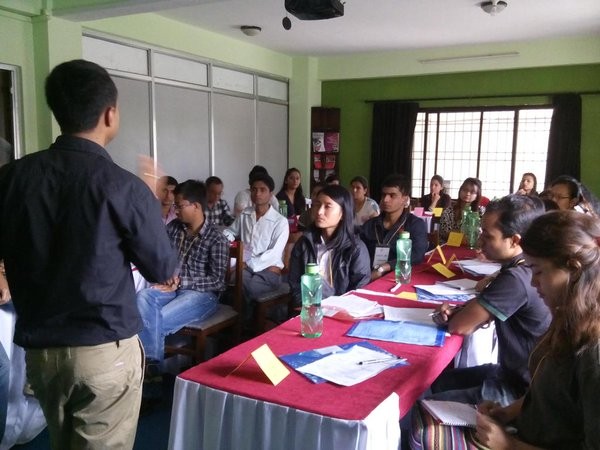Monitoring and Evaluation of Remote Areas Maternal and Newborn Health Pilot (RAMP), Taplejung
This was a pilot project implemented in the remote areas of Taplejung district for just more than a year. This study was envisaged in light of the efforts of Family Health Division (FHD) and Primary Health Care Revitalisation Division (PHCRD) to address the problem of remoteness – one of the major factors affecting the accessibility and use of health services. Three different intervention packages were piloted in the district: the first package (Package 1) includes a district wide intervention that intends to strengthen district level coordination for allocating resources for maternal and neonatal health services (MNH); the second package (Package 2) includes a supply side intervention that will be implemented in 9 VDCs aiming to strengthen health facilities in delivering MNH services, and the third package (Package 3) was implemented in 5 VDCs where both the supply side intervention and a demand side intervention for creating demand for MNH services were implemented.
Project Partner: NHSSP
Project Summary
This evaluation study was aimed at measuring the changes in indicators related to maternal and child health service utilisation; knowledge of married women of reproductive age (MWRA) of maternal and neonatal health (MNH) services and availability of physical and human resources to deliver services, especially MNH services. Additionally, this study had assessed other wider social determinants that could positively or negatively impact health-seeking behaviour.
Project Objectives (Our Scope of Work)
To look at the extent to which the pilot project achieved its intended outcomes and outputs.
To measure the extent of supply-side interventions alone increasing the use of and access to MNH services.
To determine whether the demand-side interventions complement supply-side interventions to work together to promote greater accessibility and use of MNH services and accountability in providing them.
To monitor the context and process of implementation of the RAMP in order to capture learnings, enabling factors and reasons for achieving and not achieving targets.
Project Location
Similar Projects
Introduction Nepal is in the process of institutionalizing federalization. Three tires of government, as per the new structure, ...
Reaching the unreached with family planning services … The UK Department for International Development (DFID) and the United States ...
Background TDR, the Special Programme for Research and Training in Tropical Diseases, hosted at the World Health Organization in ...
A short term project to monitor the activities of UNICEF interventions in the earthquake-affected districts to help UNICEF perform ...
Background UNICEF’s Acute Respiratory Infection Diagnostic Aid (ARIDA) project was initiated as a response to the call for better ...
Background Since 2003, MDA program has been conducting till date in Nepal. The program was initiated in all districts in 2013 and ...
